korean war
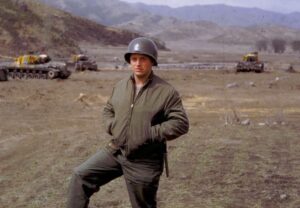 These days, our military men and women have a code…Leave No Man Behind. That was not always the case, or maybe it’s just not the case with all soldiers. On April 22, 1951, the Chinese Army launched the Spring Offensive against American forces during the Korean War. They sent 300,000 Chinese troops to attack the American lines. An influx of that magnitude would be overwhelming for any army. Within two days the American forces were being overwhelmed. A unit from the 8th Ranger Company (Airborne) was looking pretty grim on April 24, 1951. They had been ordered to move forward to gain intelligence on the Chinese. They quickly became surrounded by Chinese soldiers. It was turning into every soldier’s nightmare. It didn’t look like they were going to make it out of the Korean War alive. The men had not been captured yet, but they were stranded where they were. They radioed their situation, hoping for rescue, but no one was willing to help.
These days, our military men and women have a code…Leave No Man Behind. That was not always the case, or maybe it’s just not the case with all soldiers. On April 22, 1951, the Chinese Army launched the Spring Offensive against American forces during the Korean War. They sent 300,000 Chinese troops to attack the American lines. An influx of that magnitude would be overwhelming for any army. Within two days the American forces were being overwhelmed. A unit from the 8th Ranger Company (Airborne) was looking pretty grim on April 24, 1951. They had been ordered to move forward to gain intelligence on the Chinese. They quickly became surrounded by Chinese soldiers. It was turning into every soldier’s nightmare. It didn’t look like they were going to make it out of the Korean War alive. The men had not been captured yet, but they were stranded where they were. They radioed their situation, hoping for rescue, but no one was willing to help.
Captain James Herbert, the company commander, and his men (87 enlisted, three officers) were able to bypass a good portion of the advancing Chinese units, but eventually, became cut off from the US lines. Herbert called for artillery fire and air strikes against the approaching Chinese. To his shock, he was told to “get out as best you can” and left to figure out their escape on their own. Unfortunately, Herbert was seriously injured in the crossfire, receiving bullets in the throat, shoulder and arm. His throat was in bad shape, and he had to compress the holes on either side of his neck himself, because a tourniquet would have choked him to death. As a result of his injuries, he was no longer able to make the radio transmissions for help.
With Herbert seriously injured, acting communications chief Corporal Eugene Rivera took over, desperate to save the men. Rivera estimated that the Rangers had about 20 minutes before the Chinese reached their position. He immediately crawled his way to the top of a napalm-fried hill to reach a radio signal. While there, e had a great view of the surrounding area, and soon, with great relief, he saw what he called “the most beautiful sight of my life.” Lieutenant David Teich of Company C, 6th Tank Battalion heard the radio communications from the Rangers. He knew those men needed serious help, and immediate action was needed. Teich approached his captain to see if he and his fellow tankers could attempt a rescue mission, but was told, “We’ve got orders to move out. Screw them. Let them fight their own battles.” Stunned, Teich made the decision to disobey the orders of his captain. Teich, decided to stay and lead four tanks to rescue the Rangers who had been cut off by the Chinese forces. While Teich and the brave men who stayed with him made their way to the Rangers’ location, Teich’s captain and other US troops traveled south to safety.
Had it not been for Teich and his brave men, Rivera and his 65 men would have been doomed. There was no 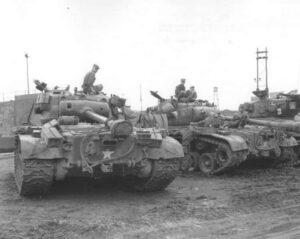 way for them to get out on their own. Teich and his men made their way to Rivera’s position on Hill 628 and retrieved the stranded Rangers. Herbert has since reflected on that day, saying, “Though we don’t always say it, Dave Teich saved our lives. If it wasn’t for him, we figure all of the survivors of the battle would have been killed or captured by the Chinese. We look upon Dave as our savior.” A total of 65 Rangers had survived and reached safety that day, because of Lieutenant David Teich. To this day, some of them still send letters of thanks to him, despite not knowing each other personally. As to the other men and their captain…well, as far as I am concerned, theirs was a despicable act of cowardice. They would have wanted others to come to their rescue, but they chose to run!! I’ll never see it differently.
way for them to get out on their own. Teich and his men made their way to Rivera’s position on Hill 628 and retrieved the stranded Rangers. Herbert has since reflected on that day, saying, “Though we don’t always say it, Dave Teich saved our lives. If it wasn’t for him, we figure all of the survivors of the battle would have been killed or captured by the Chinese. We look upon Dave as our savior.” A total of 65 Rangers had survived and reached safety that day, because of Lieutenant David Teich. To this day, some of them still send letters of thanks to him, despite not knowing each other personally. As to the other men and their captain…well, as far as I am concerned, theirs was a despicable act of cowardice. They would have wanted others to come to their rescue, but they chose to run!! I’ll never see it differently.
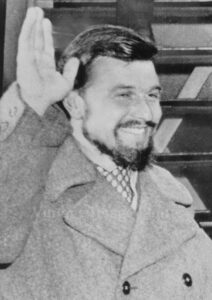 To most of us, committing espionage against our own country is…unthinkable, but there are those among us who wouldn’t give that a second thought. I think most countries have spies who do their best to find out information about another country, and I suppose that by design, that would mean that someone would have to commit espionage. I guess the two would go hand in hand, and it would depend on just how loyal a person was as to the limits they would go.
To most of us, committing espionage against our own country is…unthinkable, but there are those among us who wouldn’t give that a second thought. I think most countries have spies who do their best to find out information about another country, and I suppose that by design, that would mean that someone would have to commit espionage. I guess the two would go hand in hand, and it would depend on just how loyal a person was as to the limits they would go.
George Blake, who was born George Behar on November 11, 1922, was a British MI6 agent, and at one time thought to be a loyal agent, but during his time as a prisoner of war in Seoul, during the Korean War, he was apparently converted into a Communist, and strategically set up to be a double-agent. I suppose there is a number of prisoners of war who traded secrets for life and freedom from torture, and some who honestly changed their viewpoint, but to me it is outrageous. George Blake must  not have seen it that way, because he was a double-agent until he got caught in 1961.
not have seen it that way, because he was a double-agent until he got caught in 1961.
During his active double-agent years, he is believed to have betrayed the names of more than 40 British agents to the Soviets. Many of those he betrayed disappeared and were thought to have been executed. His betrayals basically destroyed British secret service operations in the Middle East. It must have been almost impossible to get agents to work in that region. Blake is believed to have passed on the names of almost every British agent working in Cairo, Damascus, and Beirut. Lord Parker, Lord 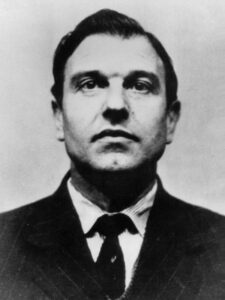 Chief Justice, the judge sentencing him, likened his actions to treason, and said, “It is one of the worst that can be envisaged other than in a time of war.” Blake was charged under the Official Secrets Act in May 1961. Blake pleaded guilty to five counts of passing secrets to the Soviet authorities during his trial, part of which was held in camera.
Chief Justice, the judge sentencing him, likened his actions to treason, and said, “It is one of the worst that can be envisaged other than in a time of war.” Blake was charged under the Official Secrets Act in May 1961. Blake pleaded guilty to five counts of passing secrets to the Soviet authorities during his trial, part of which was held in camera.
In 1966, Blake escaped from Wormwood Scrubs prison after serving five years of his sentence and having been removed from the list of likely escapers after only a year. Apparently, his supposed acceptance of his exceptionally long sentence lulled wardens into a false sense of security. It is assumed that he had help from the Soviet Union, and after his escape, he was quickly whisked away to the Soviet Union, where he lived out his life. He passed away in Moscow, Russia on December 26, 2020, at the age of 98 years.
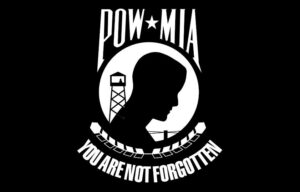 When a soldier goes missing in action, it becomes an unthinkable phenomenon for their family. Really, when anyone goes missing and can’t be found, it is unthinkable for the family, but for a soldier, it’s particularly strange, because we knew where they were and what they were doing, and their disappearance isn’t really connected with anything like an abduction. I suppose it could be classified that way, but Missing In Action (MIA), is not classified as an abduction, but rather an act of war. Often, they were killed in action, and someone other than their company took care of their body. Of course, there is also the possibility that they were taken prisoner of war, but when the prisoners are all released, and our loved one is not among them, we have to face the possibility that something else happened. Every war has its list of Prisoners Of War (POW), and its list of MIAs, and these are people that we hope will never be forgotten, so that maybe someday the truth about what happened can be found out. If they are forgotten, then it is a very real possibility that they will never be found.
When a soldier goes missing in action, it becomes an unthinkable phenomenon for their family. Really, when anyone goes missing and can’t be found, it is unthinkable for the family, but for a soldier, it’s particularly strange, because we knew where they were and what they were doing, and their disappearance isn’t really connected with anything like an abduction. I suppose it could be classified that way, but Missing In Action (MIA), is not classified as an abduction, but rather an act of war. Often, they were killed in action, and someone other than their company took care of their body. Of course, there is also the possibility that they were taken prisoner of war, but when the prisoners are all released, and our loved one is not among them, we have to face the possibility that something else happened. Every war has its list of Prisoners Of War (POW), and its list of MIAs, and these are people that we hope will never be forgotten, so that maybe someday the truth about what happened can be found out. If they are forgotten, then it is a very real possibility that they will never be found.
In every war, there are kind people who will bury the dead of the enemy right along with their own dead, but 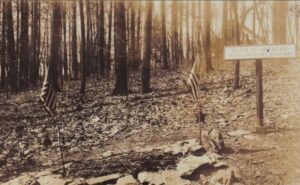 often they can’t read the names, so the dead are in an unmarked grave, possibly with their dog tags as the only definitive proof that the remains belong to that soldier. Some of those kind people have remembered where they buried the soldiers, and kept track of the proof of identity, so that maybe, somewhere down the road, they could reunite the soldier with his family…and some of those people have been returned to their families in recent years. The stories, when that happens, are so heart-warming. It reminds us once again, that there is good in this world, even if it’s harder to find these days.
often they can’t read the names, so the dead are in an unmarked grave, possibly with their dog tags as the only definitive proof that the remains belong to that soldier. Some of those kind people have remembered where they buried the soldiers, and kept track of the proof of identity, so that maybe, somewhere down the road, they could reunite the soldier with his family…and some of those people have been returned to their families in recent years. The stories, when that happens, are so heart-warming. It reminds us once again, that there is good in this world, even if it’s harder to find these days.
Of course, it is my opinion that no matter what, God knows where these lost ones are, and that someday people will be reunited with lost loved ones, either here on Earth, or later, in Heaven. That is something I have to believe when I think of anyone who has a lost loved one out there. I personally do not have a lost loved one out there…at least no one I knew personally. I have a great uncle (not sure how many greats) that went 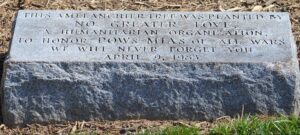 missing when he was forced into war as a result of the German government taking him in the middle of the night, but I never knew him personally. Nevertheless, I feel very sad for those people who have suffered such a loss as this. As of September 18, 2020, the American Battle Monuments Commission (ABMC) lists a total of 85,394 Americans MIA, including 4,422 from World War I, 71,692 from World War II, 7,717 from the Korean War, 1,561 from the Vietnam War. They don’t list any from other conflicts, whether there are missing ones or not.
missing when he was forced into war as a result of the German government taking him in the middle of the night, but I never knew him personally. Nevertheless, I feel very sad for those people who have suffered such a loss as this. As of September 18, 2020, the American Battle Monuments Commission (ABMC) lists a total of 85,394 Americans MIA, including 4,422 from World War I, 71,692 from World War II, 7,717 from the Korean War, 1,561 from the Vietnam War. They don’t list any from other conflicts, whether there are missing ones or not.
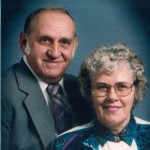
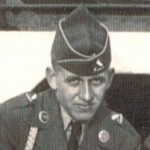 My uncle, Larry Byer was a really good musician, but that was not something I recall from years of hearing him play. It is something I’ve been told over the years. I never occurred to me that so many people in my family were talented musicians, but apparently there were a number of them. Uncle Larry played the guitar, the mandolin, and the piano. My grandfather, his dad, George Byer played the mandolin and the violin. My dad, Al Spencer and my Uncle George both played guitars. They had a regular band, and their jam sessions were like a big party at the Byer house. I knew that my dad, Al Spencer and his siblings were talented musicians, because I was told that over the years, but Uncle Larry is on my mom, Collene Spencer’s side of the family, and somehow, I just didn’t know. It’s possibly because by the time I was born, Uncle Larry was married, and starting a family of his own with his wife, Jeanette Morton. In fact, their son, Larry is just nine months younger than I am. These days, most of these band members are playing in Heaven, and I would sure love to hear that music.
My uncle, Larry Byer was a really good musician, but that was not something I recall from years of hearing him play. It is something I’ve been told over the years. I never occurred to me that so many people in my family were talented musicians, but apparently there were a number of them. Uncle Larry played the guitar, the mandolin, and the piano. My grandfather, his dad, George Byer played the mandolin and the violin. My dad, Al Spencer and my Uncle George both played guitars. They had a regular band, and their jam sessions were like a big party at the Byer house. I knew that my dad, Al Spencer and his siblings were talented musicians, because I was told that over the years, but Uncle Larry is on my mom, Collene Spencer’s side of the family, and somehow, I just didn’t know. It’s possibly because by the time I was born, Uncle Larry was married, and starting a family of his own with his wife, Jeanette Morton. In fact, their son, Larry is just nine months younger than I am. These days, most of these band members are playing in Heaven, and I would sure love to hear that music.
Uncle Larry was always a guy with a great sense of humor. He loved a good joke, and maybe that was what my Aunt Jeanette first saw in her husband of 55 years, before he went home to be with the Lord. Uncle Larry loved a good joke and wasn’t above pulling pranks either. I suppose he came by it honestly. I think just about everyone in my family…from both sides are tricksters and pranksters, and it had to come from somewhere, so I think there are a number of the aunts and uncles who had a hand in it. My mom was born between the two brothers in the family, and so she got a double portion of the pranks boys tend to play. Personally, I think she totally loved being the girl between the boys, because they included her in all the mischief.
Like all of my veteran loved ones, I am very proud that my Uncle Larry served in the Korean War. He didn’t talk much about his time in the service, but like most of the men of the war eras, he was proud to serve his 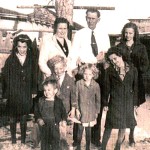
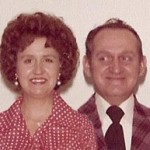 country. Uncle Larry was an honorable man and an honorable soldier. After that he came home and started a family with his best friend and wife, Jeanette Morton. They married on February 11, 1956, and their first child, Larry was born on February 9, 1957. Tina followed on November 12, 1958. Uncle Larry worked for many years at Texaco Refinery, and when they closed down there, he transferred to Louisiana, until his retirement. Today would have been Uncle Larry’s 88th birthday. Happy birthday in Heaven, Uncle Larry. We love and miss you very much.
country. Uncle Larry was an honorable man and an honorable soldier. After that he came home and started a family with his best friend and wife, Jeanette Morton. They married on February 11, 1956, and their first child, Larry was born on February 9, 1957. Tina followed on November 12, 1958. Uncle Larry worked for many years at Texaco Refinery, and when they closed down there, he transferred to Louisiana, until his retirement. Today would have been Uncle Larry’s 88th birthday. Happy birthday in Heaven, Uncle Larry. We love and miss you very much.
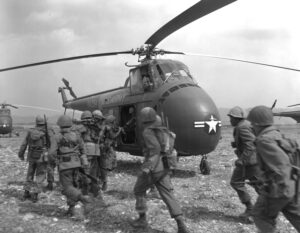 Most wars are nation against nation or against nations, but some wars split a nation in two…literally. Such was the case in Korea, which was once one nation, and after the war, became two nations. It seems like no matter which nation invades the other, or the other half, the invading nation is always trying to enslave the other nation or the other half of the nation. In the case of Korea, South Korea wanted to be a Democratic nation, and North Korea wanted to be a Communist nation. They have been fighting about their differences for years. That is simply a fight, South Korea couldn’t afford to lose, and really, North Korean people didn’t want communism either. Anyone who studies socialism and communism is clearly able to see that neither of these forms of government benefit the people of the nation. They just benefit the government. The nation split into two nations, and it was a battle to hold off North Korea from that day forward.
Most wars are nation against nation or against nations, but some wars split a nation in two…literally. Such was the case in Korea, which was once one nation, and after the war, became two nations. It seems like no matter which nation invades the other, or the other half, the invading nation is always trying to enslave the other nation or the other half of the nation. In the case of Korea, South Korea wanted to be a Democratic nation, and North Korea wanted to be a Communist nation. They have been fighting about their differences for years. That is simply a fight, South Korea couldn’t afford to lose, and really, North Korean people didn’t want communism either. Anyone who studies socialism and communism is clearly able to see that neither of these forms of government benefit the people of the nation. They just benefit the government. The nation split into two nations, and it was a battle to hold off North Korea from that day forward.
On June 27, 1950, President Harry S Truman announced that he is ordering United States Air and Naval forces to South Korea to aid the democratic nation in fighting off an invasion by communist North Korea. The Korean War had begun, and it would rage on until July 27, 1953. Truman explained that the United States was undertaking the major military operation to enforce a United Nations resolution calling for an end to hostilities, and to stem the spread of communism in Asia. Truman also sent the United States 7th Fleet to Formosa (Taiwan) to fend of any possible invasion by communist China and ordered increased military aid to French forces who were fighting communist guerrillas in Vietnam. Communism (and Socialism too) is a poison and a killer. It robs the nation of any kind of freedom. People are no longer able to do business as they would like to, but are rather at the mercy of the government business choices, and then the government takes what they make anyway.
At the Yalta Conference toward the end of World War II, Korea was split into North and South Korea when the United States, the USSR, and Great Britain agreed to divide Korea into two separate occupation zones. Split along the 38th parallel, the Soviet forces occupied the northern zone and the Americans were stationed in the south. In 1947, the United States tried to institute free elections, but the Soviets wouldn’t agree to it. In May of 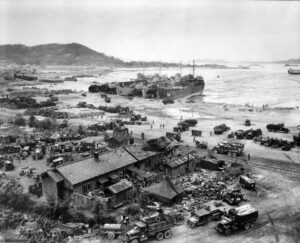 1948, the communist state of the Korean Democratic People’s Republic was established in North Korea. In August, the Democratic Republic of Korea was established in South Korea. By 1949, both the United States and the USSR had withdrawn the majority of their troops from the Korean Peninsula.
1948, the communist state of the Korean Democratic People’s Republic was established in North Korea. In August, the Democratic Republic of Korea was established in South Korea. By 1949, both the United States and the USSR had withdrawn the majority of their troops from the Korean Peninsula.
Unfortunately, that didn’t solve the problem, and likely exacerbated it. Without the controls they had placed, things quickly got bad again, and at dawn on June 25, 1950, which is still June 24 in the United States and Europe, approximately 90,000 communist troops of the North Korean People’s Army invaded South Korea across the 38th parallel. The move caught the Republic of Korea’s forces completely off guard and threw them into a hasty southern retreat. That afternoon, the UN Security Council met in an emergency session and approved a US resolution calling for an “immediate cessation of hostilities” and the withdrawal of North Korean forces to the 38th parallel. At the time, the USSR was boycotting the Security Council over the UN’s refusal to admit the People’s Republic of China and so missed its chance to veto this and other crucial UN resolutions.
On June 27th, when President Truman announced to the nation and the world that America would intervene in the Korean conflict in order to prevent the conquest of an independent nation by communism, he was also suggesting that the USSR was behind the North Korean invasion, and in fact the Soviets had given tacit approval to the invasion, which was carried out with Soviet-made tanks and weapons. There was concern that US intervention would lead to open warfare between the United States and Russia after years of “cold war.” Nevertheless, Truman’s decision was met with overwhelming approval from Congress and the US public. Truman did not ask for a declaration of war, but Congress voted to extend the draft and authorized Truman to call up reservists. Everyone knew it was inevitable.
On June 28, the Security Council met again. The Soviet Union was still boycotting, and so, in their absence, the council passed a US resolution approving the use of force against North Korea. On June 30, Truman agreed to 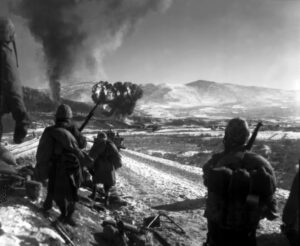 send US ground forces to Korea, and on July 7 the Security Council recommended that all UN forces sent to Korea be put under US command. The next day, General Douglas MacArthur was named commander of all UN forces in Korea. The Korean war was underway, and before it was over, South Korea, the United States, and their allied casualties included 170,927 dead and 32,585 missing (162,394 South Koreans, 36,574 Americans, 4,544 others), with a total of 566,434 wounded. North Korea and their allied casualties included 398,000–926,000 dead and 145,000+ missing (335,000–526,000 North Koreans, 208,729–400,000 Chinese, 299 Soviet), and a total of 686,500 wounded.
send US ground forces to Korea, and on July 7 the Security Council recommended that all UN forces sent to Korea be put under US command. The next day, General Douglas MacArthur was named commander of all UN forces in Korea. The Korean war was underway, and before it was over, South Korea, the United States, and their allied casualties included 170,927 dead and 32,585 missing (162,394 South Koreans, 36,574 Americans, 4,544 others), with a total of 566,434 wounded. North Korea and their allied casualties included 398,000–926,000 dead and 145,000+ missing (335,000–526,000 North Koreans, 208,729–400,000 Chinese, 299 Soviet), and a total of 686,500 wounded.
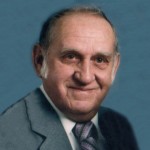
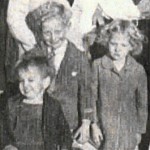 My Uncle Larry Byer was talented in music. He played the guitar, the mandolin, and the piano. My grandfather, his dad, George Byer played the mandolin and the violin. My dad, Al Spencer and my Uncle George both played guitar. They had a regular band, and their jam sessions were like a big party at the Byer house. The kids all had friends who came over as much as they could to listen to the concerts. There were others that joined in sometimes playing the instruments they knew too. It made for a great Saturday night hot spot. Uncle Larry, Grandpa, my dad, and Uncle George are all in Heaven now, and I’ll bet they are all still having those jam sessions, and enjoying the fun times. A Heavenly Band is always in demand.
My Uncle Larry Byer was talented in music. He played the guitar, the mandolin, and the piano. My grandfather, his dad, George Byer played the mandolin and the violin. My dad, Al Spencer and my Uncle George both played guitar. They had a regular band, and their jam sessions were like a big party at the Byer house. The kids all had friends who came over as much as they could to listen to the concerts. There were others that joined in sometimes playing the instruments they knew too. It made for a great Saturday night hot spot. Uncle Larry, Grandpa, my dad, and Uncle George are all in Heaven now, and I’ll bet they are all still having those jam sessions, and enjoying the fun times. A Heavenly Band is always in demand.
Uncle Larry was also a funny guy. He loved a good joke, as well as pulling a few pranks now and then. You never knew what he might do, and that was part of his charm. Together with my mom, Collene Spencer and my Uncle Wayne Byer, there was never a dull moment. What one didn’t think of another did. They were truly like the Three Musketeers!! My grandma, Hattie Byer was often forced to give them an “attitude adjustment” to straighten them out. All in all, they were good kids though…just mischievous.
When he grew up, Uncle Larry served in the United States Army, in the Korean War. While fighting a war would b the pits, my guess is that Uncle Larry took his famous humor with him, and was probably a great asset to the morale of the troops. In fighting a war, it helps to have a little humor. I helps the soldiers to let off steam. War is an ugly event, and sometimes a good laugh is very much needed. In those cases, Uncle Larry would have been the man for the job, in my opinion. Still, Uncle Larry could be serious when it was required of him, and he was a great soldier too. He served his country honorably, and when he was honorably discharged, he came 
 home and rekindled a friendship with his future wife, Jeanette Morton, who had been a family friend for years. They married on February 11, 1956. Their son Larry Wayne Byer was born a year later on February 9, 1957, and daughter Tina followed on November 12, 1958. Their family was complete…until the grandchildren came along that is. Uncle Larry left us for his Heavenly home on December 22, 2011. Today he would have been 87 years old. Happy birthday in Heaven, Uncle Larry. Strike up the band and have a great party. We love and miss you very much.
home and rekindled a friendship with his future wife, Jeanette Morton, who had been a family friend for years. They married on February 11, 1956. Their son Larry Wayne Byer was born a year later on February 9, 1957, and daughter Tina followed on November 12, 1958. Their family was complete…until the grandchildren came along that is. Uncle Larry left us for his Heavenly home on December 22, 2011. Today he would have been 87 years old. Happy birthday in Heaven, Uncle Larry. Strike up the band and have a great party. We love and miss you very much.
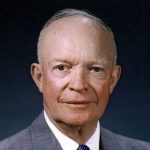 In any wartime situation, there always seem to be those who think the United States should not get involved…mostly because they think that if we just stay out of it, the enemy will leave us alone. Of course, history does not prove that theory. When we look at the wars that the United States has been drawn into, only after we were attacked too, we find that the enemy always intended to take on the United States too, and we were only delaying the inevitable. It seems like every wartime president has had to deal with the naysayers, and President Eisenhower was no different. During the Cold War years when the Communists were trying to take over the world, Eisenhower chose a strong United States defense against it, but his view of a strong defense was much different that General Hoyt Vandenberg’s view. Vandenberg wanted a massive increase in conventional land, air, and sea forces, while Eisenhower said that a cheaper and more efficient defense could be built around the nation’s nuclear arsenal. Senator Robert Taft argued that if efforts to reach a peace agreement in Korea failed, the United States should withdraw from the United Nations forces and make its own policy for dealing with North Korea, basically a completely independent foreign policy, or what one “might call the ‘fortress’ theory of defense.” While both of these suggestions might seem like the best course of action, history tells us that Senator Taft’s suggestion would make us look weak, and possibility bring about attacks on the United States, and while I would tend to agree with General Vandenberg, that we need a strong defense system, I also understand that as technology changes, nations must change with it. Having hundreds of fighter planes is not necessary, if a few can drop a bomb that will settle the matter once and for all. It is similar to the use of pen and paper when we live in a computer age.
In any wartime situation, there always seem to be those who think the United States should not get involved…mostly because they think that if we just stay out of it, the enemy will leave us alone. Of course, history does not prove that theory. When we look at the wars that the United States has been drawn into, only after we were attacked too, we find that the enemy always intended to take on the United States too, and we were only delaying the inevitable. It seems like every wartime president has had to deal with the naysayers, and President Eisenhower was no different. During the Cold War years when the Communists were trying to take over the world, Eisenhower chose a strong United States defense against it, but his view of a strong defense was much different that General Hoyt Vandenberg’s view. Vandenberg wanted a massive increase in conventional land, air, and sea forces, while Eisenhower said that a cheaper and more efficient defense could be built around the nation’s nuclear arsenal. Senator Robert Taft argued that if efforts to reach a peace agreement in Korea failed, the United States should withdraw from the United Nations forces and make its own policy for dealing with North Korea, basically a completely independent foreign policy, or what one “might call the ‘fortress’ theory of defense.” While both of these suggestions might seem like the best course of action, history tells us that Senator Taft’s suggestion would make us look weak, and possibility bring about attacks on the United States, and while I would tend to agree with General Vandenberg, that we need a strong defense system, I also understand that as technology changes, nations must change with it. Having hundreds of fighter planes is not necessary, if a few can drop a bomb that will settle the matter once and for all. It is similar to the use of pen and paper when we live in a computer age.
President Eisenhower was no stranger to sending the military might of the United States out to attack the enemy, and in his days as a general, he made those decisions every day, but as every one should realize, the 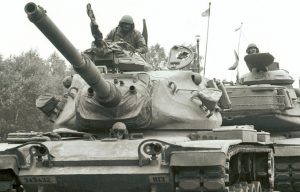 more men you have to send, the more possibility of losing them. The decision to send soldiers to their deaths was not one that Eisenhower ever took lightly. With a strong nuclear arsenal, the enemy nation knew that they had better think twice before taking on the United States.
more men you have to send, the more possibility of losing them. The decision to send soldiers to their deaths was not one that Eisenhower ever took lightly. With a strong nuclear arsenal, the enemy nation knew that they had better think twice before taking on the United States.
Without naming either man, President Eisenhower responded to both during a speech at the National Junior Chamber of Commerce meeting in Minneapolis. His forceful speech struck back at critics of his Cold War foreign policy. He insisted that the United States was committed to the worldwide battle against communism and that he would maintain a strong United States defense. It was just a few months into his presidency, and the Korean War still raging, but Eisenhower laid out his basic approach to foreign policy with this speech. He began by characterizing the Cold War as a battle “for the soul of man himself.” He rejected Taft’s idea that the United States should pursue isolationism, and instead he insisted that all free nations had to stand together saying, “There is no such thing as partial unity.” To Vandenberg’s criticisms of the new Air Force budget, in which the president proposed a $5 billion cut from the Air Force budget, Eisenhower explained that vast numbers of aircraft were not needed in the new atomic age. Just a few planes armed with nuclear weapons could “visit on an enemy as much explosive violence as was hurled against Germany by our entire air effort throughout four years of World War II.” With this speech, Eisenhower thus pointed out the two major points of what came to be known at the time as his “New Look” foreign policy. First was his advocacy of multi-nation responses to communist aggression in preference to unilateral action by the United States. Second was the idea that came to be known as the “bigger bang for the buck” defense strategy.
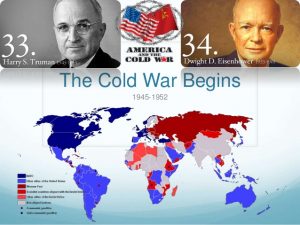 Anytime a nation is facing war, it is a stressful time for its people, but no nation will do well using the isolation strategy, because a nation that appears to be weak in its own defense, will ultimately become a target for attack. I am not an advocate for the United Nations, and in fact, I believe we need to disband the United Nations, but I do believe that a nation must have allies…nations with like values, who are willing to go to war to back up their allies, and that we must not allow bully nations to take over smaller nations, because that only strengthens their resolve to expand further. I also believe that when technology becomes available, it must be properly combined with human forces to achieve the best result in the most efficient way.
Anytime a nation is facing war, it is a stressful time for its people, but no nation will do well using the isolation strategy, because a nation that appears to be weak in its own defense, will ultimately become a target for attack. I am not an advocate for the United Nations, and in fact, I believe we need to disband the United Nations, but I do believe that a nation must have allies…nations with like values, who are willing to go to war to back up their allies, and that we must not allow bully nations to take over smaller nations, because that only strengthens their resolve to expand further. I also believe that when technology becomes available, it must be properly combined with human forces to achieve the best result in the most efficient way.
 On June 25, 1950, when North Korea invaded South Korea, my uncle, Larry Byer found himself in the middle of what would become some of the hardest years of his life. Uncle Larry was an Army private during the Korean War. Korea was originally under the rule of the Japanese empire, but when it collapsed after World War II, the country was divided. The United Nations, using the United States as its main force, came to aid of South Korea. China, along with assistance from Soviet Union, came to aid of North Korea. North Korea was unhappy with the division of the country that took place after World War II. The global tensions of the Cold War that developed immediately afterwards didn’t help the situation either. Then the North Korean government decided
On June 25, 1950, when North Korea invaded South Korea, my uncle, Larry Byer found himself in the middle of what would become some of the hardest years of his life. Uncle Larry was an Army private during the Korean War. Korea was originally under the rule of the Japanese empire, but when it collapsed after World War II, the country was divided. The United Nations, using the United States as its main force, came to aid of South Korea. China, along with assistance from Soviet Union, came to aid of North Korea. North Korea was unhappy with the division of the country that took place after World War II. The global tensions of the Cold War that developed immediately afterwards didn’t help the situation either. Then the North Korean government decided 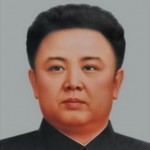 to get back the area they believed was actually theirs. In reality, Korea isn’t the only country ever to be divided, so had they simply accepted it, the problem might have been resolved right away, but they simply wouldn’t.
to get back the area they believed was actually theirs. In reality, Korea isn’t the only country ever to be divided, so had they simply accepted it, the problem might have been resolved right away, but they simply wouldn’t.
I understand why something had to be done with the country of Korea, because they had no government, but it doesn’t seem right to me to divide the country. Nevertheless, it was done that way, and in reality, that area has been volatile since that day. North Korea has tried to take over South Korea. They have also made many threats to the rest of the world. Their leader, Kim Jong-il, and now his son, Kim Jong-un, have both proven to be ruthless, and about half crazy. The rest of the world is  constantly trying to decide if we need to go in an blow them up, or try not to make them too angry. Time will tell, and it depends on Kim Jong-un.
constantly trying to decide if we need to go in an blow them up, or try not to make them too angry. Time will tell, and it depends on Kim Jong-un.
This was the world my Uncle Larry found himself in while he was a private in the Army. The North Koreans fought their battles in any underhanded way they could come up with. Their only goal was to win the war. They didn’t of course, and soon, my Uncle Larry came back home. I’m sure he was very happy to be back home. Spending any time in a crazy war like the Korean war would never be ideal in any way. I am just thankful that he made it home. Today is Uncle Larry’s birthday. He would have been 82 years old. Happy birthday in Heaven Uncle Larry. We love and miss you very much.
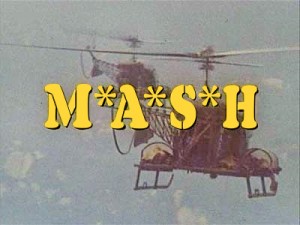 For years many Americans, myself included, were drawn into the Korean War, or at least one aspect of it, in the form of M*A*S*H, a popular television show about the way a Mobile Army Surgical Hospital was run…sort of. The show took on more than just the hospital side, by including a comical side that portrayed the antics of Benjamin Franklin Pierce, aka Hawkeye, and his best friend and co-conspirator, BJ Honeycutt. I can’t say just how true to life the show was, but we all cried right along with the doctors and nurses when they lost a patient, and cheered when they saved one.
For years many Americans, myself included, were drawn into the Korean War, or at least one aspect of it, in the form of M*A*S*H, a popular television show about the way a Mobile Army Surgical Hospital was run…sort of. The show took on more than just the hospital side, by including a comical side that portrayed the antics of Benjamin Franklin Pierce, aka Hawkeye, and his best friend and co-conspirator, BJ Honeycutt. I can’t say just how true to life the show was, but we all cried right along with the doctors and nurses when they lost a patient, and cheered when they saved one.
In reality, the MASH units were a vital part of the war effort, and the saving of 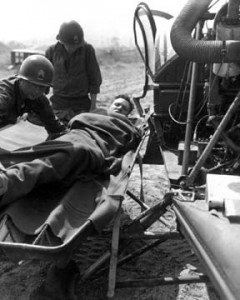 the lives of many soldiers. These were amazing surgeons who learned techniques that cut corners, making surgeries faster and more efficient, bringing lifesaving changes to medicine in the process. The MASH units were originally established in August of 1945, and then were deployed during the Korean War and later conflicts. The Army deactivated the last MASH unit on February 16, 2006, which I did not know, but I’m sure most of my military friends probably did. The MASH units were replaced by the CSH or Combat Support Hospital. I’m sure the CSH units are amazing units too, and maybe someday they will have as big a place in history as the MASH units did, but unless they do a television show that is as popular as the M*A*S*H show was, I don’t think their place in history will be as well known to the American people as the MASH units were. I’m sure that with all the improvements, the CHS units are probably better and more up to date than the MASH units were, but in the hearts of the M*A*S*H fans, the CHS units have big shoes to fill.
the lives of many soldiers. These were amazing surgeons who learned techniques that cut corners, making surgeries faster and more efficient, bringing lifesaving changes to medicine in the process. The MASH units were originally established in August of 1945, and then were deployed during the Korean War and later conflicts. The Army deactivated the last MASH unit on February 16, 2006, which I did not know, but I’m sure most of my military friends probably did. The MASH units were replaced by the CSH or Combat Support Hospital. I’m sure the CSH units are amazing units too, and maybe someday they will have as big a place in history as the MASH units did, but unless they do a television show that is as popular as the M*A*S*H show was, I don’t think their place in history will be as well known to the American people as the MASH units were. I’m sure that with all the improvements, the CHS units are probably better and more up to date than the MASH units were, but in the hearts of the M*A*S*H fans, the CHS units have big shoes to fill.
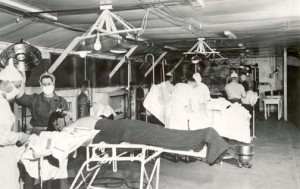 Many an evening has found Bob and I watching a M*A*S*H marathon. And during the original years, we watched it every night that it was on. We simply liked the show. I have to wonder if any other war has been watched as much as the Korean War…even though people didn’t necessarily realize that they were watching a war, or at least a part of it. While we may not have really learned a lot about the Korean War from this source, we did learn something about one part of the war…a vital part in all reality. Now that M*A*S*H is on again as re-runs, we often fine ourselves watching it again…even though we know how it will end. It is just one of those timeless shows. You just really never get tired of them…even the re-runs.
Many an evening has found Bob and I watching a M*A*S*H marathon. And during the original years, we watched it every night that it was on. We simply liked the show. I have to wonder if any other war has been watched as much as the Korean War…even though people didn’t necessarily realize that they were watching a war, or at least a part of it. While we may not have really learned a lot about the Korean War from this source, we did learn something about one part of the war…a vital part in all reality. Now that M*A*S*H is on again as re-runs, we often fine ourselves watching it again…even though we know how it will end. It is just one of those timeless shows. You just really never get tired of them…even the re-runs.
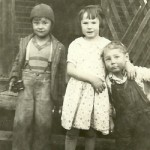 Since I wrote the story about bossy big sisters a while back, I have wondered about Bob’s great uncle, James Ernest Schulenberg. Jim was the youngest of Bob’s great grandfather, Max Heinrich Johann Carl Schulenberg’s ten children, and Bob’s grandfather, Andrew Carl Schulenberg was the oldest. Andy was born March 12, 1906, and Jim was born June 10, 1928. That put Bob’s dad, Walter Andrew Schulenberg’s sister Marion Claudine Schulenberg, born November 29, 1927, a little over 6 months older that her Uncle Jim. Nevertheless, the three were good friends, and played together often. After Andrew’s divorce from Vina Nona Leary Schulenberg, Walt and Marion’s mother, my guess is that the children didn’t see each other as much, with the possible exception of at school. Nevertheless, as we age, friends come I and out of our lives, and we maybe aren’t as close to our cousins, or in this case, an uncle, as used to be.
Since I wrote the story about bossy big sisters a while back, I have wondered about Bob’s great uncle, James Ernest Schulenberg. Jim was the youngest of Bob’s great grandfather, Max Heinrich Johann Carl Schulenberg’s ten children, and Bob’s grandfather, Andrew Carl Schulenberg was the oldest. Andy was born March 12, 1906, and Jim was born June 10, 1928. That put Bob’s dad, Walter Andrew Schulenberg’s sister Marion Claudine Schulenberg, born November 29, 1927, a little over 6 months older that her Uncle Jim. Nevertheless, the three were good friends, and played together often. After Andrew’s divorce from Vina Nona Leary Schulenberg, Walt and Marion’s mother, my guess is that the children didn’t see each other as much, with the possible exception of at school. Nevertheless, as we age, friends come I and out of our lives, and we maybe aren’t as close to our cousins, or in this case, an uncle, as used to be.
By the time Jim was grown, the Korean War was in full swing, and Jim took part in that war. I don’t know if he was drafted or if he enlisted, but I know he served, because of a story in the Billings Gazette saying that upon his return from the Korean War, he and his wife, whose name I don’t know yet, made their home in West Forsyth, Montana. That would put him right back in the town he and so many of the other, more recent, Schulenberg family members were born.
At some point around 1993, Jim moved to Billings, Montana, where he would spend the rest of his life. Jim passed away on June 24, 2006. When I first saw this picture, I had the opportunity to ask my father-in-law, who he was, but for some unknown reason, I did not ask him for very much information about his Uncle Jim. Now that he is gone, there is no longer an opportunity to ask him, and I really wish that was not the case. So often, we do not realize how much that past family history will mean to us, until we no longer have the opportunity to find out about it first hand. It is a live and learn situation, but I wish I had learned about it first, and not had to live with the regret that I didn’t ask.

